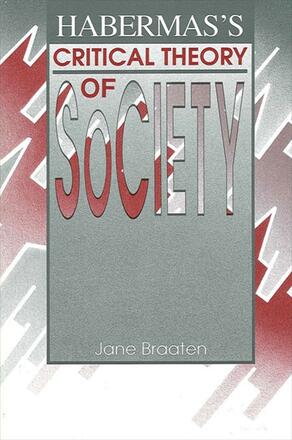
Habermas's Critical Theory of Society
Alternative formats available from:
Description
This book provides an understanding of the content and aims of Habermas's critical theory of society — the theory that analyzes the causes of our cultural lack of direction, polical apathy, and the increasing complexity of modern society. The author offers a foothold on the current debates regarding the credibility and cogency of the theory.
Braaten presents Habermas's defense of his critique of reason in his most recent work concerning the confrontation between postmodernists and neoconservatives, and modernists and liberal theorists. She also explores the possibility of applying Habermas's critical resources in the United States in ways that he himself may not have considered.
Jane Braaten is Assistant Professor at Hampshire College and Mt. Holyoke College.
Reviews
"The book presents some very complex topics and views in an uncluttered manner. This is not easy to do, and the author has done it well. " — Kenneth Baynes, State University of New York at Stony Brook